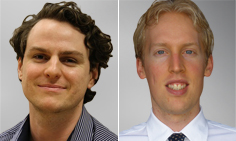LIFESTYLE disorders and chronic diseases are gripping our country and are likely to continue growing as our population ages.
Modifiable risk factors contribute to more than 30% of Australia’s total burden of, disease, disability and death. Three in five adults were either overweight or obese and four in five Australians had a chronic medical condition in 2007‒2008, with the majority having poor nutrition implicated in their pathogenesis.
The annual direct cost to Australia due to overweight and obesity 10 years ago was $21 billion, and this figure is bound to rise as our population increases.
The solution to tackling chronic and lifestyle diseases is multifaceted but must include policy changes promoting healthy choices and modification of the built environment.
Another factor integral to our nation’s management of chronic medical conditions is nutrition education. Yet, in Australian medical schools it remains haphazard and uncoordinated.
Even though evidence shows that when health care providers incorporate nutrition education into practice patient outcomes improve, most fail to use such interventions.
Primary barriers to lifestyle counselling include lack of time and false perceptions regarding the effectiveness of such interventions. Doctors also report that they have limited training in how to effectively deliver lifestyle counselling.
General practice medical educators believe current levels of nutrition education in medical schools are inadequate. Internationally the story is similar.
In Canada, a study of 451 family physicians found that more than 80% reported their formal nutrition training in medical school was inadequate. In the US, only 27% of medical schools teach the 25 hours of nutrition coursework recommended by the National Academy of Science.
In Australia, more than two-thirds of adults use complementary and alternative medicine (CAM). Universities and GPs are being targeted to prescribe CAM.
To counter spurious claims by the CAM industry, doctors need the knowledge, including about nutrition, to provide balanced advice to patients.
Also, as we develop a more sophisticated understanding on how diet influences gut microbiota causing metabolic and immune diseases, an even greater understanding of nutrition will be necessary for doctors in the future.
In the UK, the lack of nutritional and lifestyle education in the medical curricula has spawned doctor-led campaigns such as Move Eat Treat. This non-profit group, of which we are members, seeks to fill the gap in the curriculum by providing education to health professionals regarding nutrition, physical activity, sleep, smoking, substance use and mental wellbeing.
In the US, there are calls for more novel strategies to include nutrition in medical education, with one medical education program already including cooking classes.
In Australia, efforts have been made to address the low level of nutrition medical education in medical school curricula with the development of a web-based nutrition toolkit, developed by Australian researchers and the Dietitians Association of Australia. However, the main barrier to the implementation of this technology is the view that the medical education curriculum is already full.
In lieu of the integration of formal web-based nutrition education, medical educators involved in problem-based learning in Australia should endeavour to incorporate nutrition into their teaching. This can be done without increased cost, and without encroaching significantly on other critical areas of learning.
Greater familiarity with nutrition information will create further impetus for doctors to counsel their patients. And an added benefit may be an improved diet for the doctor too.
Dr Malcolm Forbes is a medical registrar, NHMRC postgraduate scholar, and adjunct lecturer in the College of Medicine and Dentistry, James Cook University. Dr Harris Eyre is a Fulbright Scholar at the University of California, Los Angles. He is a psychiatry registrar and is undertaking a PhD through the University of Adelaide.

 more_vert
more_vert
Just a quick comment to Anonymouss Comment above “Experts in diet and nutrition exist, as do experts in exerise as treatment…”
Much as you are right, of course, I believe that you are perhaps missing the point. With more knowledge it becomes easier to both refer and back up what is beneficial so your patient is both getting, and importantly feeling, you are even more on his/her side.
Experts in diet and nutrition exist, as do experts in exerise as treatment. Accredited dietitians and exercise physiologists could offer greater support to GPs in facilitating behaviour change if there was a more cohesive teamcare structure available. The current funding structure for GPs does not remunerate adequately for the time it would take to investigate the reasons for a person’s inability to make recommended behavioural change around diet and exercise, let alone provide individualised strategies and followup.
Great article! There have been changes made in this area over the last decade or so by many individual doctors and other healthcare workers, although as poined out, it certainly does however need the broader ‘official’ training to be part of the information intake and practice for Qualificartion.
Surely there is by now enough validated evidence of the real difference correct nutrition makes. not only in obesety, but also in thebroader perspective of dealing with dis-ease in the human body AND mind. An undernourished body creates it’s own set of emotional/chemical/hormonal difficulties that also affect how the body deals with ‘problem’.
Looking at the current Poll result on this page must also clarify the want, as well as need for increaced nutritional training.
Beware, mention of any scientific pathophysiology via the gut-microbiome-metabolic relationship or actually teaching nutrition to Drs to a level where they may therapeutically intervene might be met by skepticism by some, Dr Ieraci?
Yes, doctors need more education and training about nutrition, and not just because of the obesity crisis but for all the reasons explained in this piece. It is certainly one of the critical areas for a medical student progam and an opportunity for interprofessional learning.